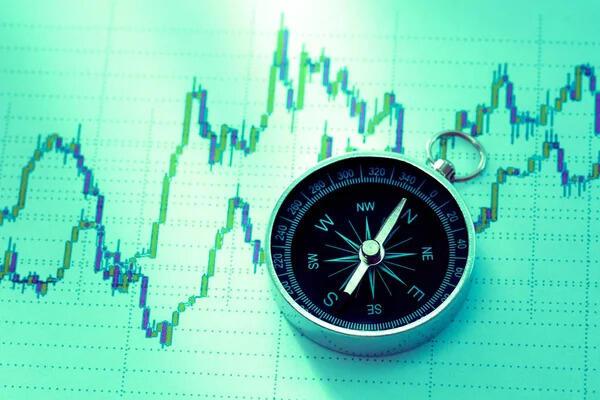How does forex futures trading work?
Forex futures trading is a form of forex trading where buyers and sellers agree to exchange currencies at a predetermined price in the future. This type of trading helps to mitigate exchange rate risks and provides a way for importers, exporters, and banks to protect themselves from unforeseen currency fluctuations. But how exactly does forex futures trading work? Let's delve into the intricacies of this fascinating market.

1. What is forex futures trading all about?
Forex futures trading, also known as currency futures, involves entering into contracts to exchange one currency for another at a specified rate on the final trading day. These contracts are typically traded on exchanges, unlike the spot forex market where currencies are exchanged immediately. The key point to remember is that futures trading is essentially a commitment to buy or sell a currency at a future date.
- Key points:
- Contracts are standardized and traded on exchanges.
- Parties agree to exchange currencies at a predetermined rate in the future.
- Futures require both parties to fulfill the contract on the settlement date.
2. Who participates in forex futures trading?
Forex futures trading attracts a diverse range of participants, each with their own objectives and strategies. Importers and exporters use futures contracts to hedge against currency risk, while speculators aim to profit from price movements. Additionally, financial institutions and banks utilize futures to manage their currency exposure and ensure the smooth functioning of their operations.
- Key players:
- Importers and exporters seeking to mitigate exchange rate fluctuations.
- Speculators looking to capitalize on currency price movements.
- Financial institutions and banks managing currency risk.
3. How are forex futures prices determined?
Forex futures prices are influenced by a variety of factors, including interest rates, economic indicators, geopolitical events, and market sentiment. These prices are determined through an open and transparent bidding process on futures exchanges, where buyers and sellers negotiate and agree on contract terms. Traders use technical analysis, fundamental analysis, and market trends to forecast future price movements.
- Price determinants:
- Interest rates and monetary policy decisions.
- Economic data releases and indicators.
- Global events, such as political turmoil or natural disasters.
4. What are the advantages of forex futures trading?
Forex futures trading offers several advantages to market participants, including the ability to hedge against currency risk, access to leverage, liquidity, and transparency. By using futures contracts, individuals and businesses can lock in exchange rates for future transactions, thereby minimizing potential losses due to adverse currency movements. Furthermore, the leverage provided by futures allows traders to control a larger position with a smaller amount of capital.
- Benefits of forex futures:
- Risk management through hedging.
- Opportunity for leverage and enhanced profitability.
- High liquidity and price transparency.
5. What are the risks associated with forex futures trading?
While forex futures trading can offer lucrative opportunities, it also comes with inherent risks that traders should be aware of. Price volatility, leverage, market manipulation, and counterparty risk are some of the key risks associated with futures trading. Traders must exercise caution, employ risk management strategies, and conduct thorough research to navigate the complexities of the forex futures market.
- Common risks:
- Market volatility and rapid price fluctuations.
- Exposure to amplified losses due to leverage.
- Potential for market manipulation and fraud.
6. How does technology impact forex futures trading?
Advancements in technology have revolutionized the way forex futures trading is conducted, making it more accessible, efficient, and transparent. Trading platforms, algorithmic trading, automated risk management tools, and real-time data feeds have enhanced the speed and accuracy of trading execution. Additionally, mobile trading apps and social trading networks have democratized access to the forex futures market, allowing more individuals to participate in trading activities.
- Technological innovations:
- Trading platforms for seamless order execution.
- Algorithmic trading for automated decision-making.
- Real-time data feeds and analysis tools.
7. What role does regulation play in forex futures trading?
Regulation is a crucial aspect of the forex futures market, designed to protect investors, ensure market integrity, and prevent financial crimes. Regulatory bodies such as the Commodity Futures Trading Commission (CFTC) in the United States and the Financial Conduct Authority (FCA) in the UK oversee and regulate forex futures trading activities. Compliance with regulatory requirements, including reporting obligations, capital requirements, and anti-money laundering measures, is essential for market participants to operate legally and ethically.
- Regulatory considerations:
- Compliance with CFTC and FCA regulations.
- Adherence to reporting and disclosure requirements.
- Implementation of risk management and anti-fraud measures.
8. What are the future trends in forex futures trading?
The forex futures market continues to evolve with changing market dynamics, technological advancements, and regulatory developments. Key trends shaping the future of forex futures trading include the rise of algorithmic trading, the integration of artificial intelligence and machine learning, the impact of blockchain technology on settlement processes, and the growth of sustainable and socially responsible investing. As the market landscape evolves, traders and investors must stay informed, adapt to new trends, and embrace innovation to thrive in the competitive world of forex futures trading.
- Emerging trends:
- Algorithmic trading and high-frequency trading strategies.
- Utilization of artificial intelligence for market analysis.
- Integration of blockchain for secure and efficient settlement.
As you can see, forex futures trading is a dynamic and multifaceted market that offers a range of opportunities and challenges to participants. Whether you are a seasoned trader or a novice investor, understanding how forex futures trading works is essential for success in this exciting arena. Stay informed, stay curious, and keep exploring the world of forex futures trading!
Please indicate:COINLIVEBASE » How does forex futures trading work?